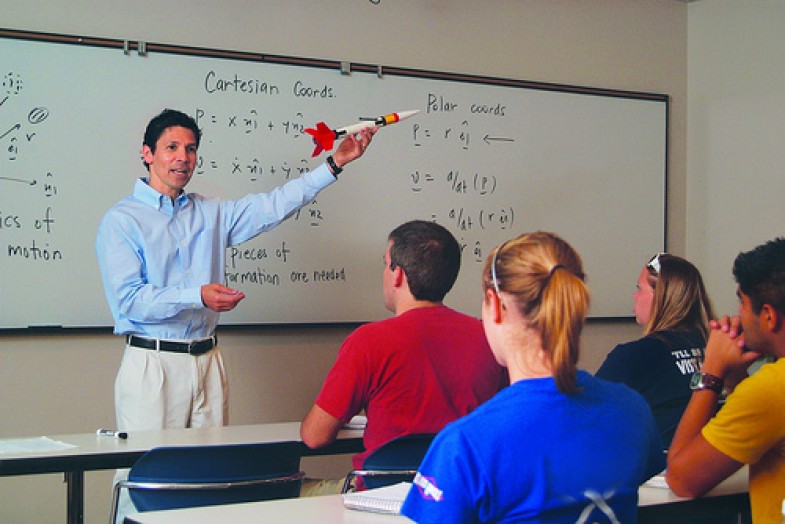For anyone who’s seen Inside Job —the powerful documentary exposing how shenanigans on Wall Street triggered the financial crisis that still haunts us today—it’s hard to forget the footage of shameless Harvard and Columbia University professors who made a bundle working on behalf of major banks and never disclosed these lucrative ties in their influential policy recommendations and research reports.
It’s infuriating that business and economic departments at top universities were in the on the games that made billions for Wall Street executives but led to massive unemployment and lost savings for millions around the world. Universities—both state and private— are public trusts that exist thanks to generous funding in federal research grants and philanthropic dollars, upon which no federal or state taxes are paid because they are supposed to be charitable and educational enterprises. (State universities, of course, also get direct taxpayer support.) This would imply a commitment to the public good, which is made a mockery of by the actions of economists and business professors chronicled in the movie.
Educational institutions are part of the commons, and should serve the common good. Many professors today pursue research that improves the lives of ordinary people with breakthroughs in field as diverse as medicine, sociology, education and the humanities. But, regretfully, some academics now serve the highest bidder, not the public, becoming cogs in the profit-making machinery of Wall Street banks, agribusiness, pharmaceuticals and other industries that show no concern for anything beyond quarterly earnings.
Restoring the idea of the commons to the core of universities’ mission could produce a tide of creativity and ingenuity that could help wash away society’s most intractable problems. If public service was stressed as an ironclad requirement for receiving and keeping tenure, imagine what new solutions might soon appear to eradicate disease, improve the quality of education in low-income communities, eliminate environmental threats and countless other accomplishments.
A Simple Step to Strengthen the Information Commons
Another opportunity to capitalize on academic research—much of which is funded by the public one way or another through grants, tax-free donations and colleges’ tax-exempt status—struck me recently while talking about the state of journalism to students at Augsburg College in Minneapolis.
I emphasized the point, new to them, that information itself is a commons that should be shared among all people. After praising the internet as a new force that puts the power of the press into the hands of anyone who can afford a computer and online access, I felt compelled to tell the other side of the story.
While the proliferation of websites devoted to every conceivable subject has exponentially boosted our access to information, it has also undermined the kind of in-depth and investigative reporting that helps citizens understand the complex workings of an increasingly complex world. This kind of journalism is not cheap, and in the U.S. was traditionally carried out by well-staffed broadcast networks, magazines and—especially— newspapers. Even alternative and dissenting journalists, who lacked the resources to do large-scale investigations, depended on the basic information turned up by mainstream reporters at The New York Times, Washington Post, New Yorker, Time magazine, CBS News and many other sources.
But the Internet information explosion has siphoned away readers and advertisers, dismantling the traditional economic model of mainstream media. These organizations are slashing expenses and laying off journalists in order to compete with websites that generally pay “content providers” little or nothing. The result is that today’s news is full of stirring opinions and thoughtful commentary, which is a welcome improvement over the staid fare of traditional “objective” journalism, but often lacking in detailed in-depth reports on what’s going on below the surface in business, government, science and everywhere else.
Thankfully, some websites are stepping up to offer in-depth reporting, some newspapers and magazines continue to produce top-flight investigative reporting, and some foundations and non-profit groups understand the need to invest in detailed and often expensive research. But there is another untapped source that could supply the public with valuable information on virtually every topic under the sun: academic research.
Most professors at colleges across North America are required to regularly publish their research—the so-called “publish or perish” rule that determines professional advancement and whether faculty keep their jobs. The vast majority of this work today appears in peer-reviewed journals and university press books that rarely circulate outside a small coterie of other academics in that particular field. Faculty members rarely get credit when their works appears in non-academic outlets.
What if professors could also boost their credentials and keep their jobs by disseminating their research in magazines, newspapers, websites, online journals, books, films, exhibitions and other outlets seen by millions? This would not mean diluting the findings of their work, merely presenting their ideas in a way that could inform, inspire, infuriate or involve the public-at-large. Editors and producers at various news organizations could help them adapt their material for a wider audience.
Think what practical or important things we could learn by regularly hearing from epidemiologists, criminologists, sociologists, pop culture experts, management authorities, women’s studies scholars. Even economists and business professors not in the pocket of corporate powers.
This strikes me a surefire win-win-win. The public gains access to potentially valuable information it would not otherwise know about it. Professors enjoy an opportunity to spread their work more broadly, yet at the same time continue to contribute to the growth of their field by publishing in specialized journals. And universities bolster their public standing by strengthening their ties to the common good.
_Jay Walljasper is an On the Commons Fellow and editor of the forthcoming book All That We Share: A Field Guide to the Commons (due out from New Press in January. He is also a contributing editor at National Geographic Traveler, a Senior Fellow at Project for Public Spaces and the former editor of Utne Reader magazine. His website is “JayWalljasper.com”:www.JayWalljasper.com


